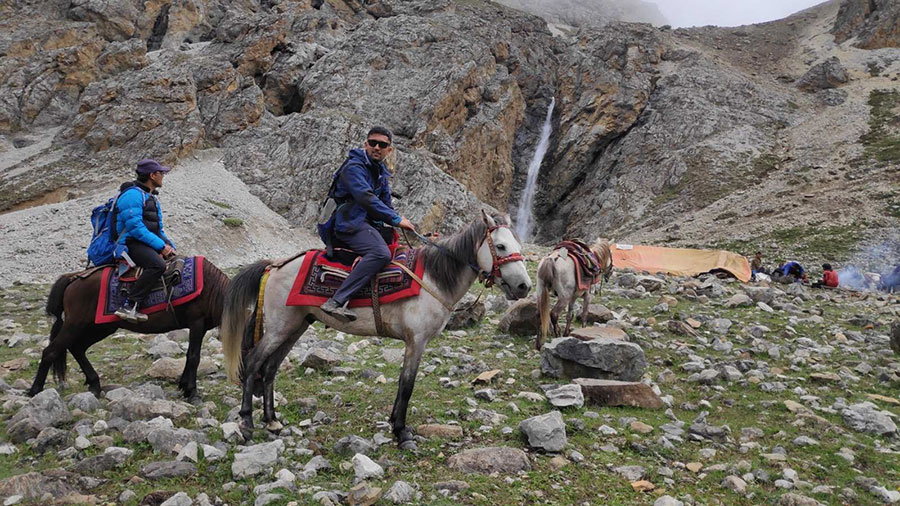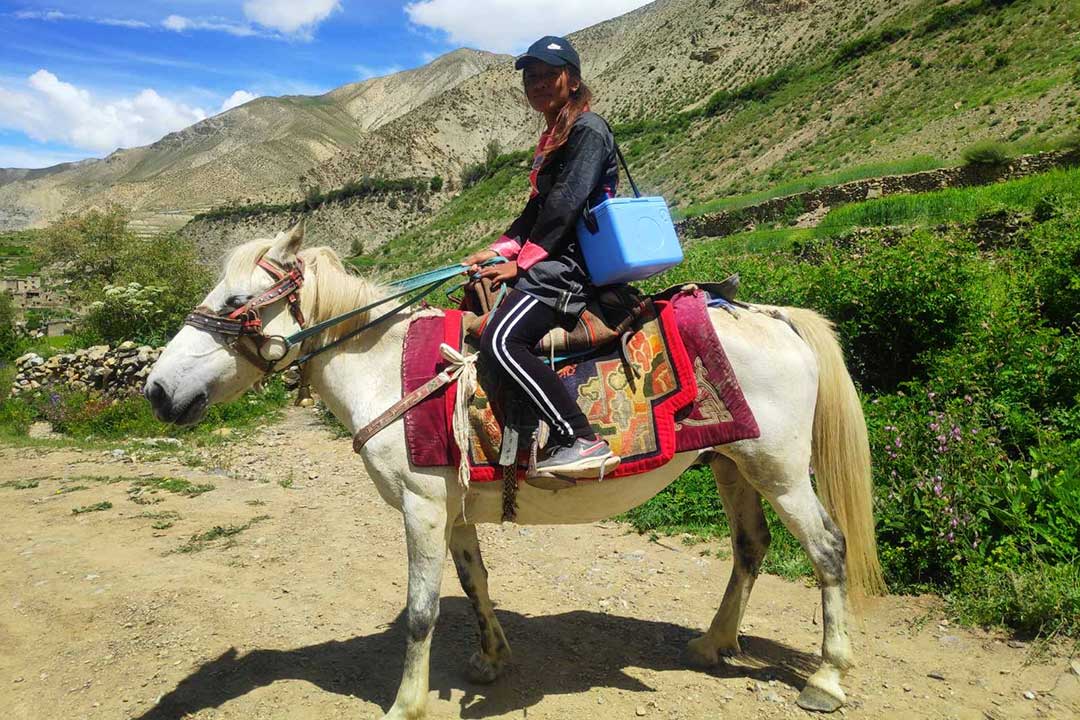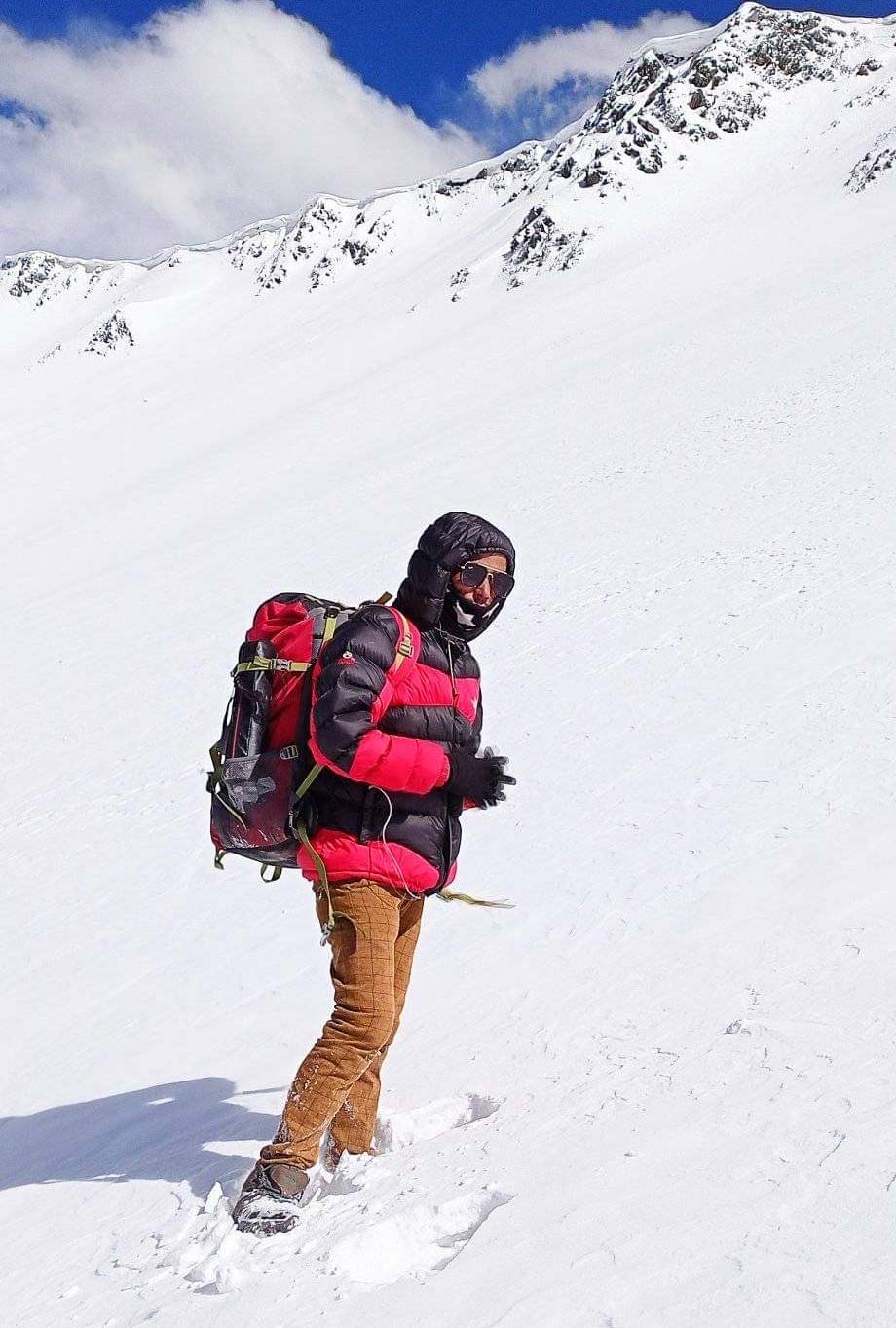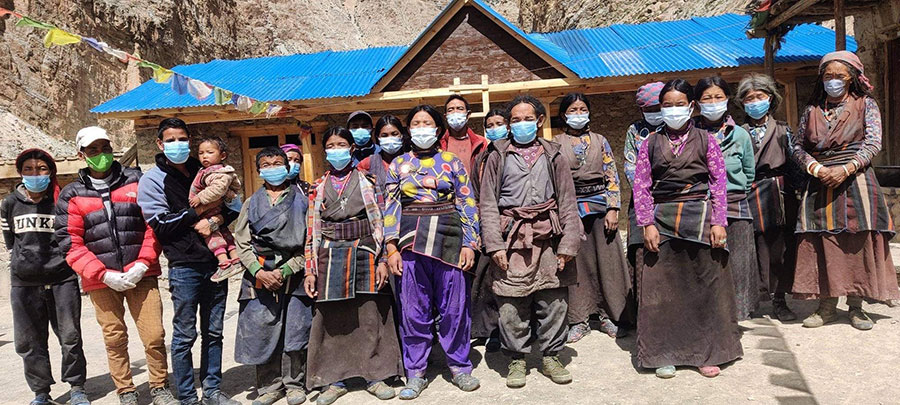Travelling by horseback through the Himalayas: Getting vaccines to the people in Nepal
The Himalayan villages of Nepal are some of the most inaccessible places on earth. Nevertheless, health workers are putting their lives on the line to make sure they aren’t left behind in the fight against COVID-19.
- 7 February 2022
- 4 min read
- by Pragya Timsina

Dr Prasanna Karki, a medical officer at Dolpa District Hospital, was called to a nearby village to treat a young woman who reported a reaction after being vaccinated for COVID-19. The issue: Dolpa is located high in the Himalayas, 1,000 kilometres from Kathmandu, with no roads.

Following the phone call, he loaded all the necessary medicine and equipment onto a horse and set out towards the mountain village. It took five days on horseback to reach his patient. Fortunately, by the time he arrived, she had improved. Dr Karki’s diagnosis was that it was not an anaphylactic reaction, but rather COVID-19 vaccine-related anxiety that he treated with simple anxiolytic.
“During my journey from the district headquarters to the villages, there’s always a time when I do not see houses or people for an entire day,” she says. “I worry that if I fall from the horse and get injured, there will be no one to rescue me and the vaccines.”
Nepal’s landscape is such that there are places it takes up to eight days to reach from the country’s capital using donkeys and horses, which are considered the most reliable sources of transport. This hasn’t stopped health care workers, particularly in the mountain regions, from delivering COVID-19 vaccines.
Since the beginning of the COVID-19 vaccination campaign in Nepal, Nurse Pemba Gurung has been working incessantly in the Dolpa district to deliver vaccines to each and every household. She owns a horse, which is the only means by which she travels through the hills and mountains to carry vaccines from the district headquarters to villages that are at least five days away.
Nurse Pemba Gurung travelling by horse to deliver vaccines to the mountain villages of Dolpa.

Anyone living comfortably in the cities can’t help but get goosebumps upon hearing Pemba's story of vaccine delivery in these mountains. A lone woman carrying COVID-19 vaccines, travelling on horseback for four to five days without proper food and shelter and across such difficult geographical terrain is a heroic task.
“During my journey from the district headquarters to the villages, there’s always a time when I do not see houses or people for an entire day,” she says. “I worry that if I fall from the horse and get injured, there will be no one to rescue me and the vaccines.”
Have you read?
She, as a health care worker, recognises how precious every single vial of COVID-19 vaccine is in saving villagers from the virus. She is very conscious of her every step so that the limited vaccines she gets for her villagers do not get damaged. Fortunately, in the mountains, the cold temperatures mean the cold chain is maintained without refrigeration. In addition, Pemba keeps the vaccine boxes outside on the terrace of the house during the night time so that temperature is maintained.
Bir Bahadur Budha of Humla district, neighbouring Dolpa, is another health worker who delivers COVID-19 vaccines in the mountains. He worries about taking horses into such difficult terrain. Instead, he delivers vaccines on foot. He has to travel through a pass which is situated at around 5,300 metres altitude, and he once even suffered from altitude sickness.

“While delivering vaccines, I got a very severe headache and was vomiting while crossing the Kang La Pass,” he says. “I later realised it was due to altitude sickness. That was one of the most painful situations for me.”
Hundreds of health care workers in Nepal are working day and night to deliver COVID-19 vaccines to every corner of the country.
People in those villages are equally thankful to everyone who is directly or indirectly involved in delivering vaccines to where they live. Pshering Lama from Shey Phoksundo village of Dolpa district says, after being vaccinated, “Health care workers like Pemba are delivering vaccines by risking their life and we want to thank everyone who brought this for us.”

Dr Samir Kumar Adhikari, assistant spokesperson for Ministry of Health and Population also wholeheartedly praises the work of health care workers involved in vaccine delivery to the remote areas of Nepal.
He says, “It is all due to the hard work of our health care workers that the Nepal government is able to achieve very high vaccine coverage even in the places where there are no facilities or roads.”
More from Pragya Timsina
Recommended for you





